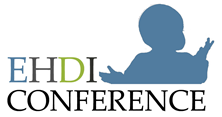

|
<< BACK TO AGENDA |
| PLENARY/WORKSHOP INFORMATION | |
|---|---|
| Title: | Opening Plenary: 'Genetic Screening for Usher Syndrome' |
| Speaker(s): |
William J. Kimberling, Ph.D., FACMG Director of the Center for the Study and Treatment of Usher Syndrome, Boys Town Hospital
Professor of Biomedical Sciences, Creighton Medical School Dr. William Kimberling is a medical geneticist with an interest in neurosensory disorders, primarily those that affect both hearing and vision. He graduated from the Indiana University School of Medicine and held a postdoctoral fellowship at the University of Oregon Medical School. After 5 years at the University of Colorado Medical School, he moved to Boys Town National Research Hospital where his research on Usher syndrome began. He, in collaboration with other researchers, world wide, has helped to identify and characterize several of the genes that cause Usher syndrome. He is now a Professor at the University of Iowa Medical School in the departments of Ophthalmology, and Otolaryngology where he continues to research deaf/blindness, specifically developing early detection strategies that can be widely and inexpensively used by schools and newborn hearing screening programs. Joe, Lita, and David Salazar Joe and Lita Salazar are from San Antonio, Texas where they own and operate a MacDonalds franchise. They are the parents of David, who has Usher syndrome, a devastating genetic disorder that robs its victims of their hearing and then slowly takes away their vision due to retinitis pigmentosa as they approach adulthood. Usher syndrome is the leading cause of combined deaf blindness in the United States. Joe and Lita have actively supported programs which do research to prevent and support people with Usher syndrome. |
| Abstract: | Usher Syndrome (US) is a major cause of combined deaf/blindness. The hearing (HL) loss is usually congenital and either profound or moderate. The retinitis pigmentosa (RP) is a progressive loss of vision manifested first by nightblindness and tunnel vision, and, in many cases, blindness as an adult. Early diagnosis of US promises many benefits for early treatment, rehabilitation and education. However, traditional diagnostic tests like the electroretinogram (ERG) are difficult and expensive to perform on young children. An inexpensive Usher screening test has been developed that is directed against all recurring US mutations. US screening is now an inexpensive and feasible mechanism for screening large numbers of children at a reasonable cost. More than 8% of children with HL may have US and will develop serious vision problems; newborn hearing screening programs routinely identify very young children at high risk for US. The integration of US screening along with screening for other genetic causes of hearing loss into newborn hearing programs has great potential for benefit. An US screening program will lay the foundation for future clinical trials. Several reasonable hypotheses about treatment to retard the development of the RP have been proposed and it is sensible to believe that early intervention would result in the greatest benefit to the US child and family. |
| Presentation(s): | Not Available |
| Handouts: | Not Available |